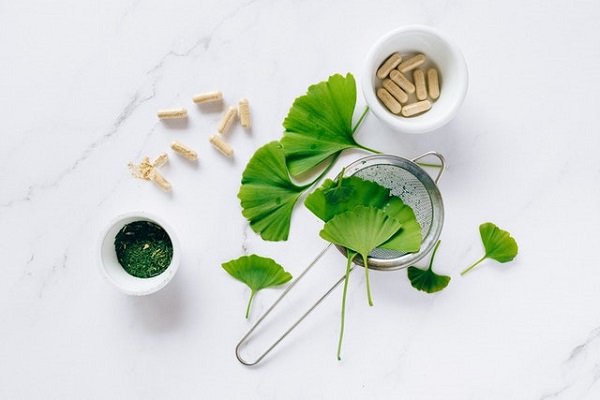Natural supplements are being increasingly used to combat stress, anxiety and depression. They are useful all right, but they need to be taken with prudence and preferably under medical guidance.
St John’s Wort, or Hypericum perforatum, was among the first natural, herbal supplements to break into the mainstream market. It remains a leading natural antidepressant. It is suggested to act like a selective serotonin reuptake inhibitor [SSRI], similar to Prozac. It was also thought that the active ingredient in St John’s Wort was hypericin — but, recent research suggests that there may be a host of compounds at work. Studies also evidence that it improves mild-to-moderate depression.
I’d like to tell readers to be careful though, about using it with other antidepressants. The best thing to do is to talk it over with your physician, because the supplement may trigger sun sensitivity and also interfere with anaesthetics, if someone is going in for a surgical procedure.
Gingko
This is another useful natural remedy. It relieves mild-to-moderate depression. This may be attributed to its reported ability to improve blood flow to the brain. There are also, perhaps, several mechanisms at work. Ginkgo works as a platelet activating factor inhibitor — this means is that it thins the blood. But, at the same time, it also increases the amount of oxygen that can be transported in the blood. It works as an antioxidant too and this is important to brain chemistry as well.
If someone comes to me and says they are depressed and also feeling sluggish and have mental clouding, or are not thinking clearly, that is when I start to think about ginkgo. It is suggested that people taking blood thinners should be wary of ginkgo. Well, if you have hypertension, a history of stroke, or are taking serious blood thinners, you should be careful taking ginkgo.
Kava
Next on our list is kava, the herb you call ‘the key to calm.’ Kava reportedly works much the same way like Valium — it inhibits the enzyme that is involved in producing anxiety, or the anxious state. I’d recommend it to people who are having trouble sleeping. But, you have to be careful; you don’t want to take a lot of it [kava causes drowsiness] and drive a car, for example. Kava has stood on its own against Valium-type drugs in laboratory comparisons. However, kava reportedly has serious side-effects, when taken in extremely high doses — for example, ataxia and paralysis, or kidney issues. It may also be addictive.
Tyrosine
The next is tyrosine. You may call this amino acid ‘stress buster.’ Tyrosine is an important building block for neurotransmitters, including dopamine, norepinephrine and epinephrine, or adrenaline. Tyrosine can be depleted during periods of stress. Taking tyrosine supplements builds up a person’s reserves of this amino acid — this allows neurotransmitters to be produced. We can’t make dopamine, or norepinephrine, without tyrosine. It is evidenced that rebuilding the neurotransmitters somehow helps people to perform better under stress.
Initial studies with tyrosine were performed with army personnel during repetitive stress situations. Tyrosine was found to be helpful in such situations, and it works just as well with other kinds of repetitive stress, the kind you’d find with day-to-day work, or in difficult situations where you have to be on guard, or keep your performance up.
Sometimes people find that they just get so exhausted, they’ve been working and working and they get this sense of fatigue depression, where they say, “I just can’t do anymore.” They start to become anxious and depressed. Tyrosine can help alleviate that kind of problem. Tyrosine, however, should be taken under medical supervision, if one is on conventional antidepressants or anti-hypertensives, or medications to manage high blood pressure.
SAM-e
Let us finally look at S-adenosyl-L-methionine, or SAM-e [pronounced, sammy], a chemical compound that occurs naturally, though apparently not always at the proper levels, in our brains. This new kid on the block is being called the ‘miracle’ mood booster. SAM-e definitely has its place in the treatment of depression. It’s crucial for the manufacture of neurotransmitters, and when depressed patients are given SAM-e, they show increased levels of important brain chemicals, like dopamine and serotonin. SAM-e seems to also have the side-benefit of easing arthritis pain too. I envisage it would be particularly helpful for people suffering from depression and arthritis, or perhaps depression triggered by that arthritic twinge.

